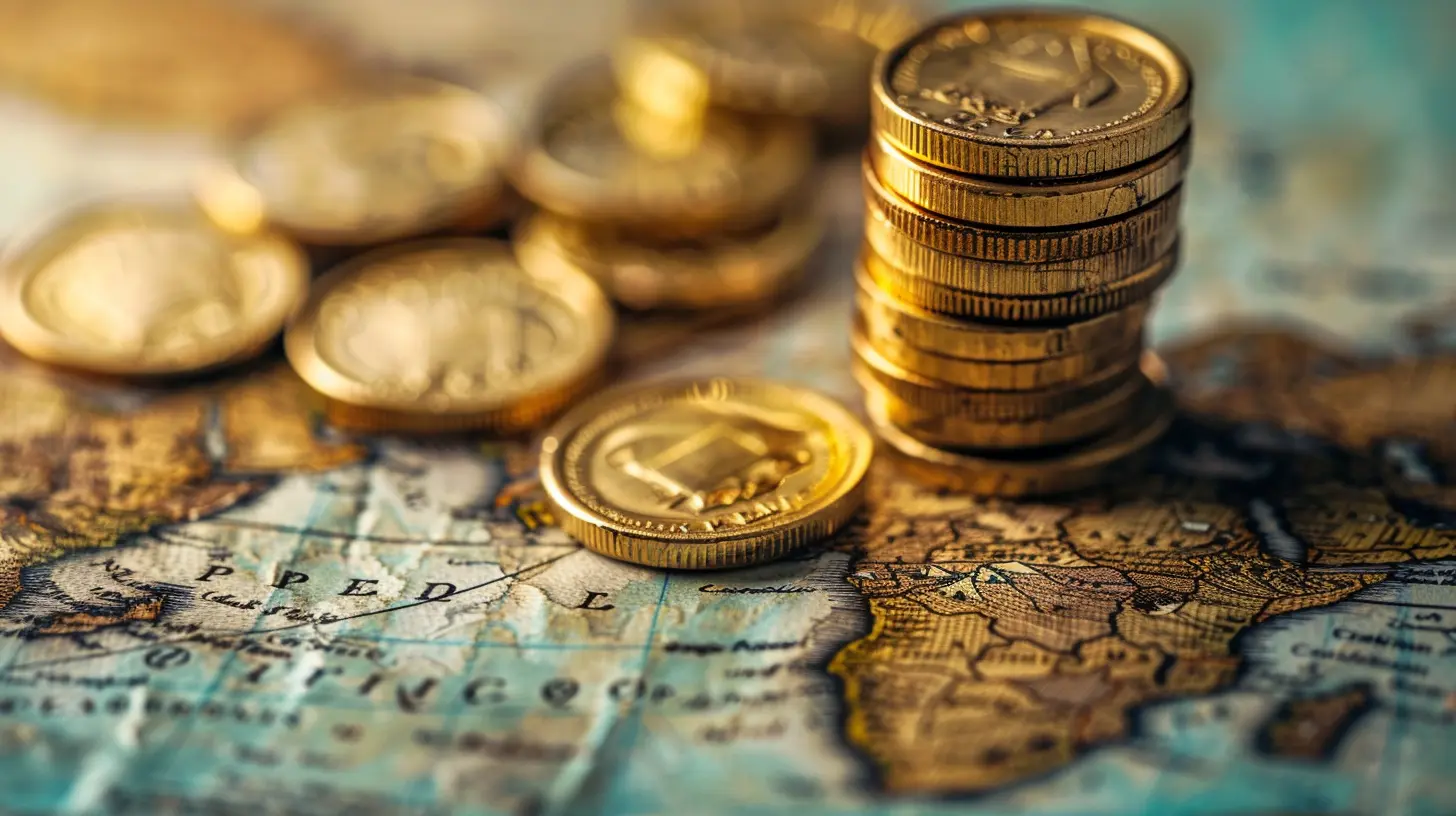Using Offshore Accounts to Protect Wealth from Taxation
8 July 2025
When it comes to keeping more of your hard-earned money, the ultra-wealthy don’t just rely on savings accounts or simple tax breaks—they take things offshore. Offshore accounts have long been a tool for those looking to legally protect their wealth from excessive taxation, offering financial privacy, asset protection, and portfolio diversification. But is it as simple as stashing your money in some Caribbean bank and calling it a day? Not quite.
In this guide, we’ll break down offshore accounts, how they actually work, and how (when done legally) they can help safeguard your fortune from aggressive tax policies.

What Is an Offshore Account?
An offshore account is a bank or investment account held in a foreign country outside of your country of residence. These accounts are often in financial hubs known for tax advantages and banking privacy, such as Switzerland, the Cayman Islands, or Singapore.Now, before you start picturing some shady backroom deal in a smoke-filled casino, let’s be clear: offshore accounts aren’t illegal. However, they have been heavily scrutinized due to how some people misuse them to dodge taxes illegally. When done properly, using an offshore account is a perfectly legal and smart way to manage wealth.

Why Do People Use Offshore Accounts?
Let’s be honest—no one likes paying taxes. While taxes fund essential government services, many would argue that certain tax systems are simply too burdensome. Offshore accounts provide an opportunity to legally reduce tax liabilities while benefiting from financial advantages you won’t typically find at home.1. Tax Reduction
One of the biggest reasons individuals and businesses open offshore accounts is tax optimization. Some offshore jurisdictions have zero or very low tax rates on interest, capital gains, or corporate earnings. This allows individuals to keep more of their investment gains instead of handing them over to the tax authorities.2. Financial Privacy
Ever heard the phrase “mind your own business”? That’s essentially what offshore banking laws do. Some jurisdictions have strict banking secrecy laws that protect account holders from prying eyes. Unlike local banks, they aren’t obligated to disclose every detail of your finances to your government.3. Asset Protection
Lawsuits, creditors, divorces—wealthy individuals face constant threats to their assets. Offshore accounts make it harder for anyone to seize your wealth unfairly. If your assets are parked in a country with strong asset protection laws, they are much more difficult for third parties to access.4. Economic and Political Stability
Not every country enjoys a stable financial system. If you live in a nation with volatile economic conditions or a government that regularly freezes assets, offshore accounts can be a safety net. By spreading wealth across multiple jurisdictions, you ensure that political decisions at home don’t wipe out your fortune.5. Currency Diversification
Ever heard the saying, “Don’t put all your eggs in one basket”? The same applies to currency. Holding multiple currencies in offshore accounts helps protect wealth from inflation or currency instability in your home country.
Where Do People Open Offshore Accounts?
Not all offshore jurisdictions are equal. Some offer better tax benefits, while others are more focused on banking secrecy or asset protection. Let’s look at some of the most popular offshore banking destinations:- Switzerland: Known for its robust banking privacy laws and stable financial system.
- Cayman Islands: No direct taxes on income, capital gains, or corporate earnings.
- Singapore: Highly regarded for strong asset protection and low taxes.
- Panama: No taxes on offshore income and a trustworthy banking system.
- Hong Kong: A major financial hub with excellent business-friendly laws.
Each jurisdiction has its own pros and cons, and choosing the right one depends on your specific financial goals.

Is It Legal to Use Offshore Accounts to Reduce Taxes?
Absolutely—if done correctly. The key thing to remember is that using offshore accounts to legally minimize taxes is not the same as tax evasion. Tax evasion is the illegal act of hiding income or lying to tax authorities, and that can land you in serious trouble. However, tax avoidance—using legal loopholes and offshore strategies to minimize tax obligations—is perfectly legal.Many high-net-worth individuals, corporations, and even politicians use offshore accounts to structure their finances smartly. The trick is ensuring compliance with tax laws, such as reporting foreign accounts if required by your home country’s tax agency.
For example, if you're a U.S. citizen, you’re required to file an FBAR (Foreign Bank Account Report) if your offshore accounts exceed $10,000 in total. Failing to report foreign assets can lead to hefty fines or even criminal charges.
How to Legally Use Offshore Accounts
If you’re considering opening an offshore account, here’s how to do it the legal way:1. Choose the Right Jurisdiction
Don’t just go for the country with the lowest taxes. Consider factors like financial stability, banking protection laws, and political reliability.2. Work with Reputable Banks
Not all offshore banks are created equal. Look for well-established financial institutions with a strong global reputation. Remember, if something seems too good to be true, it probably is.3. Report Your Accounts Properly
Always comply with your country’s tax laws. If your government requires foreign account reporting, do it. Transparency is key to staying out of legal trouble.4. Use Trusts or Offshore Companies
Savvy investors often use offshore companies or trusts to further protect their wealth. These structures can provide additional tax benefits and limit liabilities.5. Get Professional Advice
Tax laws are complicated, and offshore banking regulations change frequently. A seasoned tax attorney or financial advisor can help ensure you stay within the legal boundaries while maximizing benefits.
Should You Open an Offshore Account?
If you have significant assets or business income and are tired of overpaying in taxes, offshore banking could be a game-changer. However, it’s not for everyone. If your assets are relatively modest, the costs and complexities might outweigh the benefits.That said, if you value financial privacy, asset protection, and tax efficiency, an offshore account could be one of the smartest financial moves you ever make. Just be sure to do it the right way—legally and transparently.
Final Thoughts
Offshore accounts have long been a powerful tool for the wealthy to protect their money from excessive taxation, financial instability, and legal threats. Contrary to popular belief, offshore banking isn’t just for billionaires or shady businessmen—it’s a legitimate strategy that anyone with substantial assets can consider.Remember, the key is to play by the rules. Use legal strategies, report your holdings properly, and consult professionals to ensure you’re on the right track. Because when done correctly, offshore banking can be a smart and effective way to take control of your financial future.
all images in this post were generated using AI tools
Category:
Wealth PreservationAuthor:

Uther Graham
Discussion
rate this article
1 comments
Bailey Dodson
Offshore accounts can be a strategic tool for wealth protection and tax optimization, but they require careful planning and compliance with regulations. It's essential to approach this option with transparency and expertise to ensure sustainable financial benefits while mitigating risks associated with non-compliance.
July 29, 2025 at 10:50 AM

Uther Graham
Thank you for your insightful comment! Indeed, careful planning and compliance are crucial for leveraging offshore accounts effectively while minimizing risks. Transparency and expert guidance are key to maximizing their potential benefits.


